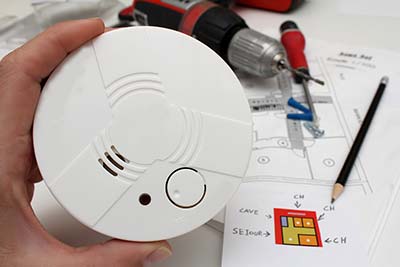 Purchasing homeowners insurance in Florida can be confusing. Getting the help of an independent agent is a wise decision, but you should also have a basic understanding of what's important. We asked our agents and employees what mistakes they often see homeowners make when purchasing insurance. Here's a list of the top responses:
Purchasing homeowners insurance in Florida can be confusing. Getting the help of an independent agent is a wise decision, but you should also have a basic understanding of what's important. We asked our agents and employees what mistakes they often see homeowners make when purchasing insurance. Here's a list of the top responses:
1. Only Focusing on Price
Price is one of the variables consumers seem to focus on when considering which company best fits their needs. Many people look for the cheapest homeowners insurance they can find. Make sure your "cheap" policy isn't less expensive because important coverage has been removed or because the company has inadequate reinsurance.
 Here are a few questions to ask when evaluating an insurance company:
Here are a few questions to ask when evaluating an insurance company:
- Is this company licensed to operate in the state? It's safer to buy from a company licensed in your state, because then you can rely on your Office of Insurance Regulation to help if there's a problem. You can check to see if a company is licensed HERE.
- Is this company financially stable? A Florida insurance company should have a financial stability rating (FSR) from Demotech, Inc. Most mortgage companies will require a FSR of A or better. You can check to see a company's rating HERE.
- What kind of service will I get? This is a little harder to evaluate. First, you can check to see if the company is a member of the Better Business Bureau and what their rating is. Second, you can check the number of official complaints a company has on file compared to their volume of business with the Office of Insurance Regulation HERE. Last, ask your agent, friends and family!
2. Purchasing a Policy for the Wrong Occupancy

Who is living in your home directly determines the type of policy you should have. If the occupancy type changes at any time the policy needs to be updated as well. There is a different policy type for people who own and live in their home, own a home which they arerenting out, or even people who own a home which nobody lives in. In some instances, your claim won't be covered if you have the wrong policy type for your occupancy. This is because each of these situations carries its own unique risks and is priced for those risks.
3. Not Understanding Exclusions to Your Policy
If your insurance policy covered everything you wouldn't be able to afford it! Your homeowner's policy is meant to protect you in the event of a major - or even semi-major disaster, but does not respond as a warranty plan. Take the time to understand, from a comprehensive level, what is and is not covered. Your agent can help you with this. Below are some common exclusions, but you should consult your agency and policy documents to fully understand any coverage, terms, conditions, limits, and exclusions.
- Normal wear and tear
- Damage that developed slowly over time
- Damage caused by neglect
- Damage resulting from a flood, earthquake, or aggressive dog attacks
4. Thinking Flood Insurance is Included
Many people are not aware that a standard Florida homeowner's insurance policy does not include flood coverage. Flood insurance covers your property and/or contents against storm surges and flooding during torrential rains, hurricanes and tropical storms. Flood insurance can be bought through the National Flood Insurance Program. Your insurance agent can help you learn more about whether it makes sense for you. There is a 30-day waiting period required before a flood policy will go into effect, so it is important not to buy this coverage at the last minute.
5. Only Insuring Your Home for the Amount You Owe Your Mortgage Company
Your mortgage company is only concerned with protecting their asset. Let's say you own a home that is worth $300,000, but you only owe $50,000 to the mortgage company. Your mortgage company will only require you to purchase $50,000 in insurance coverage. Obviously, $50,000 in insurance is a lot less expensive than $300,000, but what if you have a total loss? You will only receive a check for $50,000 and it goes straight to the bank - nothing for you!
6. Choosing "Actual Cash Value" over "Replacement Cost"
 When you experience a loss, Actual Cash Valuewill only provide you reimbursement for the "book value" of the item. In many cases an old couch, table, or computer is worth next to nothing so you would receive next to nothing. If you select "Replacement Cost" you will be given a brand new replacement of that item without any deduction for depreciation.
When you experience a loss, Actual Cash Valuewill only provide you reimbursement for the "book value" of the item. In many cases an old couch, table, or computer is worth next to nothing so you would receive next to nothing. If you select "Replacement Cost" you will be given a brand new replacement of that item without any deduction for depreciation.
7. Reducing Coverage to Lower Premium
People often make the mistake of reducing the amount of coverage in an attempt to bring down their premium. A better approach would be to carry strong coverage and simply raise your deductible. You still have a lower premium and you get to keep your robust coverage. For example, in the event of a large loss, you will only be "out-of-pocket" a deductible of, say, $1000 or $2500 - instead of being out $175,000 to replace all the contents of your home.
Here are some other steps you can take to reduce your premium:
- Make your home more disaster resistant - In Florida, homeowners can qualify for a windstorm premium discount if the home has wind resistantfeatures.
- Improve your home security - Most insurance companies will offer a discount to homeowners with a home security system.
- Install a fire alarm - Fire alarms save lives and money on your homeowners insurance! Make sure your insurance company knows if you have a fire alarm.
- Review your policy limits - If you've paid for special higher limits on personal property that you no longer have you'll want to reduce limits or eliminate the special coverage all together.
- Insure the cost to rebuild your home NOT the market value - Your insurance does not cover the land under your house. If you include the value of your land you will pay a much higher premium than you should. Basically, you should insure what it would cost to rebuild your home NOT the market value.
8. Thinking Your Policy Will Cover Someone Else's Personal Property
If you are renting out your home and those occupying it experience a loss to their personal property your "landlord" policy will most likely not cover this loss. Your tenants need to have her/his own renters policy to cover their personal property and liability.
9. Shopping Around For a New Policy When Premiums Go Up
People are often encouraged to "shop your homeowner's policy if the premium goes up." All insurance companies add a small inflation guard to keep your coverage up to date with inflation of building products. If you feel your premium went up more than slightly, ask your agent for a coverage review. Sometimes the coverage to replace your home needs to be adjusted, or you may find coverage you can replace with one you needed more - offsetting the price. A carrier will always take into consideration how much history you have with them if you need extra time to make a payment, or if you have other special circumstances.
10. Buying a Policy Directly Without an Agent
First, insurance is a complicated, important contract and should be fine-tuned to an individual customer's needs - not just a "one size fits all" approach.Independent agents are required by their state to be licensed and continually educated on all aspects of insurance. They can communicate the important details to you, so you can make an informed decision. Second, Independent agents can compare differences in price and coverage across many companies. Third, when you act on your own, without an agent, you are also on your own if you make mistakes in your coverage. Last, most agents sell many types of insurance policies so you can easily purchase home, auto, life and much more in one stop.
 Author:
Author:
Amanda Richter
arichter@aiicfl.com
Learn more about the author